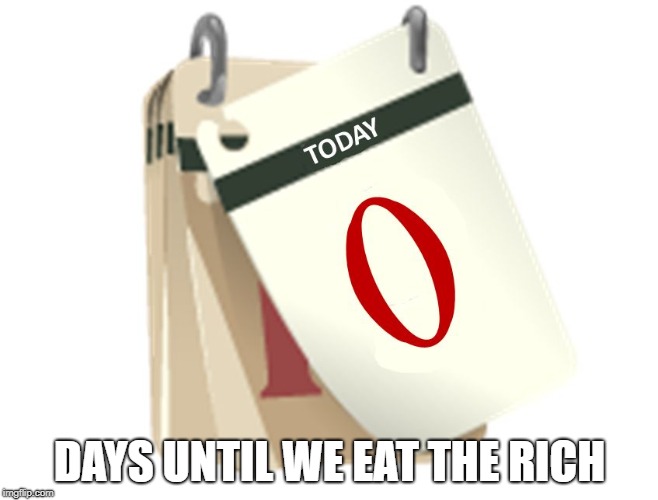Ironsided
Flower of happiness
- Joined
- May 25, 2012
- Messages
- 1,267
So the Davos economic forum report 2019 came out. We are now down to 26 billionaires owning more assets than the poorest 3.8 billion (over 50% of pop. worldwide). These are shady numbers on both sides but the trend is clear enough; it’s down from 43 in 2018, and 65 in 2017. Also mind, these numbers are presented by the political and financial “elite”.
A less than 1% tax on that 26 person wealth is enough to pay for schooling for the 262 million children worldwide who do not go to school. But that would be an actual investment in values like less radicalisation, less crime, increased productivity and over all wellbeing and understanding. Sadly people do not get rich by investing in value - but for profit. This won’t change unless we change it. Personally I’d prefer it’s done democratically rather than a bloody revolution but that seems less likely every year.
Ten years after the financial crisis and the number of billionaires have doubled. Isn’t that a peculiar facts? One would think that a financial crisis would hurt people in finance like an environmental disaster would people in that environment? It’s not that peculiar. Neither example hurt the folks on the hill. If you are in the know you will secure your foundations. The people washed away by storms are the same small investors hurt by the financial crisis, good folks and smarmy folks alike.
Now to the core of the poodle for me: Why do we treat economics as if it was natural science when it clearly is not? Why are we supposed to hold business schools in academic regard when they are clearly craft schools - not for understanding and managing value, but for accumulating profit? The best thing to ever come out of Elon Musk is the truism that MBAs are useless – I’d go one further and say they are detrimental to society. Their schools rigged and funded by the same corporate interests that used to buy nobility titles to seem legit. A historical vanity power play we look back on with a smirk but ultimately accept still. Stop listening to these corporate idiots and maybe we will leave a less obscene future for the next generation.
A less than 1% tax on that 26 person wealth is enough to pay for schooling for the 262 million children worldwide who do not go to school. But that would be an actual investment in values like less radicalisation, less crime, increased productivity and over all wellbeing and understanding. Sadly people do not get rich by investing in value - but for profit. This won’t change unless we change it. Personally I’d prefer it’s done democratically rather than a bloody revolution but that seems less likely every year.
Ten years after the financial crisis and the number of billionaires have doubled. Isn’t that a peculiar facts? One would think that a financial crisis would hurt people in finance like an environmental disaster would people in that environment? It’s not that peculiar. Neither example hurt the folks on the hill. If you are in the know you will secure your foundations. The people washed away by storms are the same small investors hurt by the financial crisis, good folks and smarmy folks alike.
Now to the core of the poodle for me: Why do we treat economics as if it was natural science when it clearly is not? Why are we supposed to hold business schools in academic regard when they are clearly craft schools - not for understanding and managing value, but for accumulating profit? The best thing to ever come out of Elon Musk is the truism that MBAs are useless – I’d go one further and say they are detrimental to society. Their schools rigged and funded by the same corporate interests that used to buy nobility titles to seem legit. A historical vanity power play we look back on with a smirk but ultimately accept still. Stop listening to these corporate idiots and maybe we will leave a less obscene future for the next generation.


